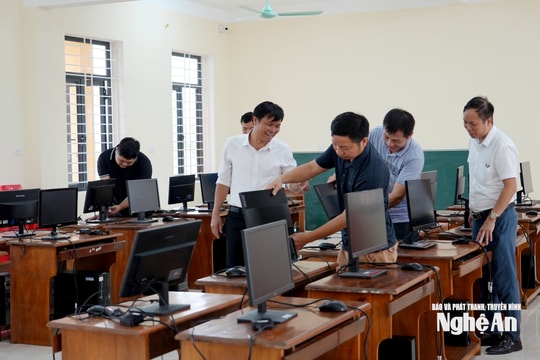What solutions to overcome difficulties in implementing the boarding primary school model in Nghe An?
(Baonghean.vn) - Boarding schools are considered an effective model suitable for the characteristics of mountainous districts. The model is currently being replicated in many localities in Nghe An province. However, the operating conditions of the schools still face many difficulties.
Patchy facilities
At the end of September, Tien Phong 2 Primary Boarding School for Ethnic Minorities had an official decision to recognize it as a boarding school. This is the second primary boarding school in Que Phong district with 81 ethnic minority students studying and living at the school, accounting for 1/3 of the total school population. The boarding students are mostly students in grades 3, 4, and 5 transferred from the remote locations of Na Pon, Huoi Muong, and Na Sach.
Implementing the boarding school model, students stay at school 5 days a week, from Monday to Friday. All eating, living, activities and studying are done by teachers in the school.

Putting the model into practiceboarding schoolat Tien Phong 2 Primary Boarding School for Ethnic Minorities is considered necessary in the current period, especially since the implementation of the new general education program. In particular, for students from grade 3 and above, in addition to the cultural subjects as prescribed, English and Information Technology have become compulsory. In order for students to fully study the subjects according to the program, the only way is to transfer them to the main school to study in a centralized manner, avoiding dividing classes as before, which does not ensure teaching and learning organization. The current problem is that although a boarding school model has been built, the school's facilities are at zero.
Therefore, currently, the school's accommodation for the students is still temporarily borrowed from the kindergarten's auditorium. The accommodation area is rudimentary, even the beds and beds for students are being temporarily arranged. In addition, other conditions for organizing boarding such as bathrooms, playgrounds, and kitchens to organize cooking for students have not been invested in accordance with regulations.
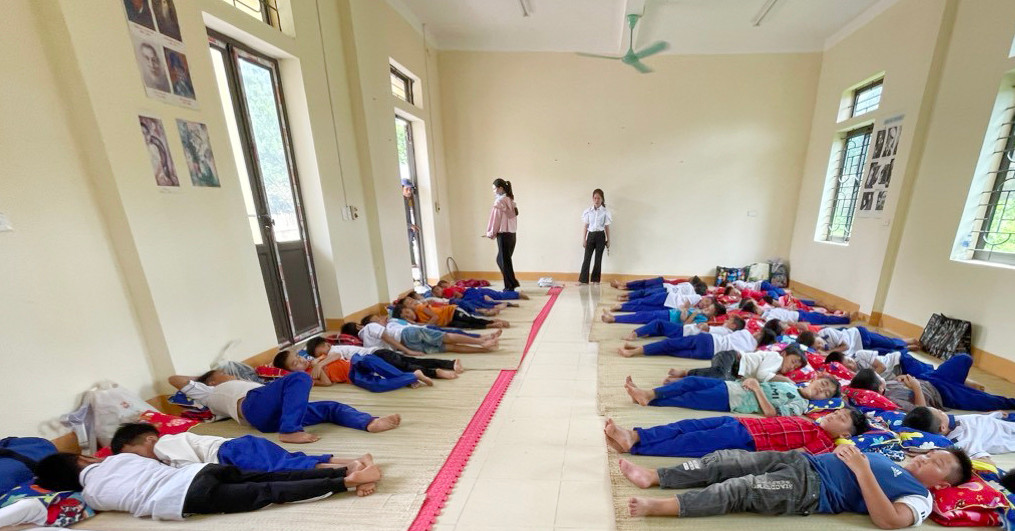
We have just submitted a report to the district and the Department of Education requesting early investment in facilities and living equipment for the school. In the immediate future, we hope to have 30 beds to ensure sleeping places for the children as winter is approaching, so that they do not have to stay temporarily on simple, inadequate and unwarm wooden stalls.
Bao Nam Primary Boarding School for Ethnic Minorities (Ky Son) has also been recognized as a boarding school since this school year. The entire school has 67 ethnic minority students who enjoy the regime under Decision 116 and are staying at school every day of the week. In addition, there are more than 150 students, including students from remote locations such as Phia Khoang and Khe Nap, who only eat lunch at school thanks to the support of benefactors.
Previously, to implement this boarding model, Bao Nam Primary Boarding School for Ethnic Minorities was supported by Ho Chi Minh City Voice Radio with 4 level 4 rooms, enough for students to stay. However, after a year of operation, the school's facilities have not been supplemented, living and playing conditions are all makeshift and lacking.
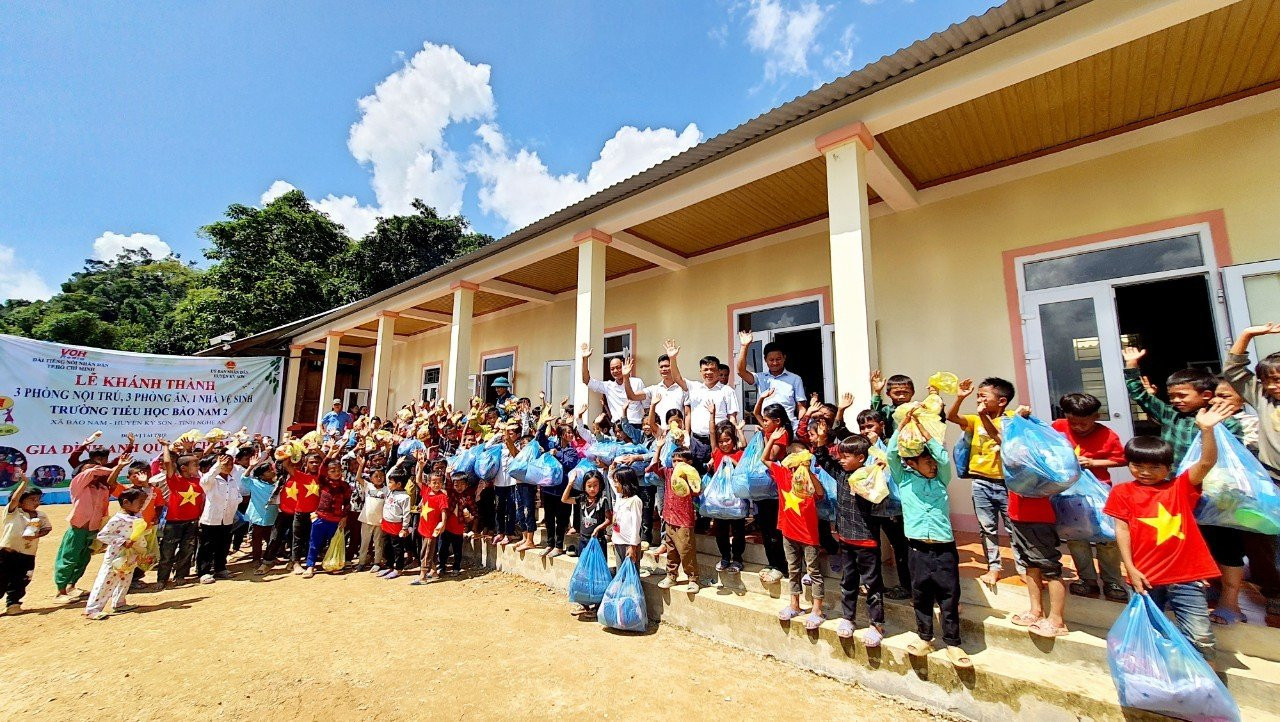
Teacher PhamBa Duong - Principal of the school added: Organizing the boarding model brings many benefits. The most obvious is that the children are fully cared for, their health is improved. In addition, the children study in a concentrated manner, in a good educational environment, have many opportunities to interact with friends... However, for the model to be implemented effectively, it is necessary to invest in facilities and conditions for organizing boarding such as places for play, activities, communal kitchens...
Need to create mechanisms and conditions for operation
Nghe An is one of the pioneering provinces in the country to implement a boarding school model for ethnic minority students at the primary level. In the last 2 years alone, the number of schools established has increased.
In Ky Son district, more than 90% of primary schools in the area have been recognized as boarding schools. In Tuong Duong district, by the 2022-2023 school year, the whole district has established 19 boarding schools for ethnic minorities, including 8 primary boarding schools for ethnic minorities and is continuing to build 3 more schools expected to be recognized this year. In Quy Chau, Que Phong, and Con Cuong districts, this model is also continuing to be developed.
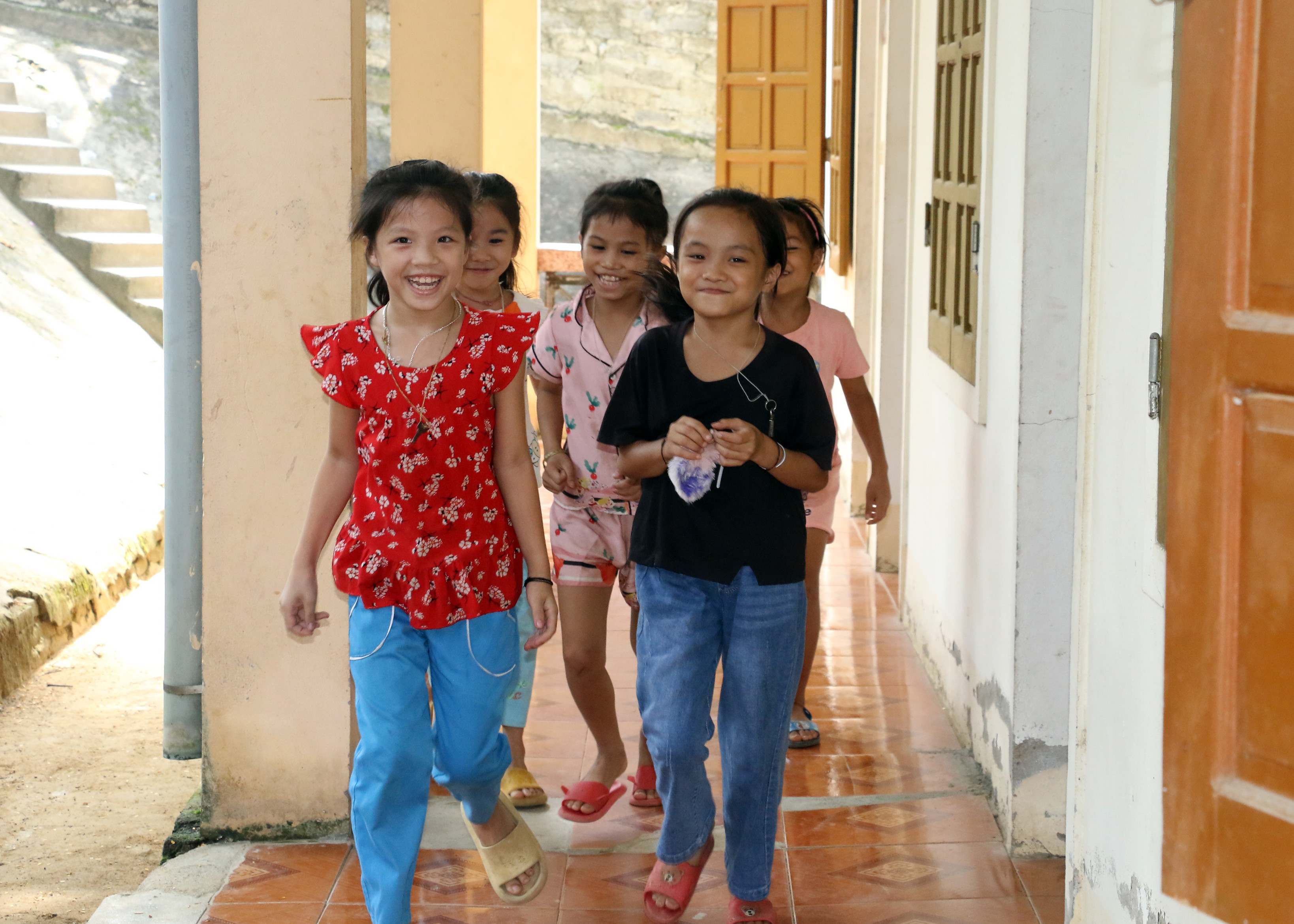
Thanks to the establishment of boarding school models, the number of students dropping out of school and students not attending school regularly has been minimized. Boarding students study two sessions a day, special educational content on ethnic culture, preserving traditional cultural identity and extracurricular activities have been enhanced, teaching Vietnamese to ethnic minority students has been focused on, and the quality of comprehensive education has clearly and steadily changed.
However, in addition to the advantages, most of the current boarding school models at the primary level still face many difficulties, especially in terms of facilities and living facilities. Previously, the implementation of this model took place in quite urgent conditions when the new program required schools to withdraw students from remote locations to study in a centralized manner to follow the program progress. Meanwhile, the conditions for organizing boarding have not been invested in or are patchy and lacking.
For example, at Nga My Primary School (Tuong Duong), the school currently has more than 100 students staying at the boarding school but the school does not have rooms for them. The school is temporarily having to convert the teachers' rooms and functional rooms into boarding rooms. The remaining 50 students are staying at the stilt house the school is renting next to the school. The conditions for organizing a kitchen for boarding students are not yet guaranteed according to regulations.
Teacher Kha Van Thong - Principal of the school said: Currently, the school is in the process of preparing documents to be recognized as a boarding school and we hope to soon receive investment so that the organization of boarding for students can be convenient and achieve the set goals.
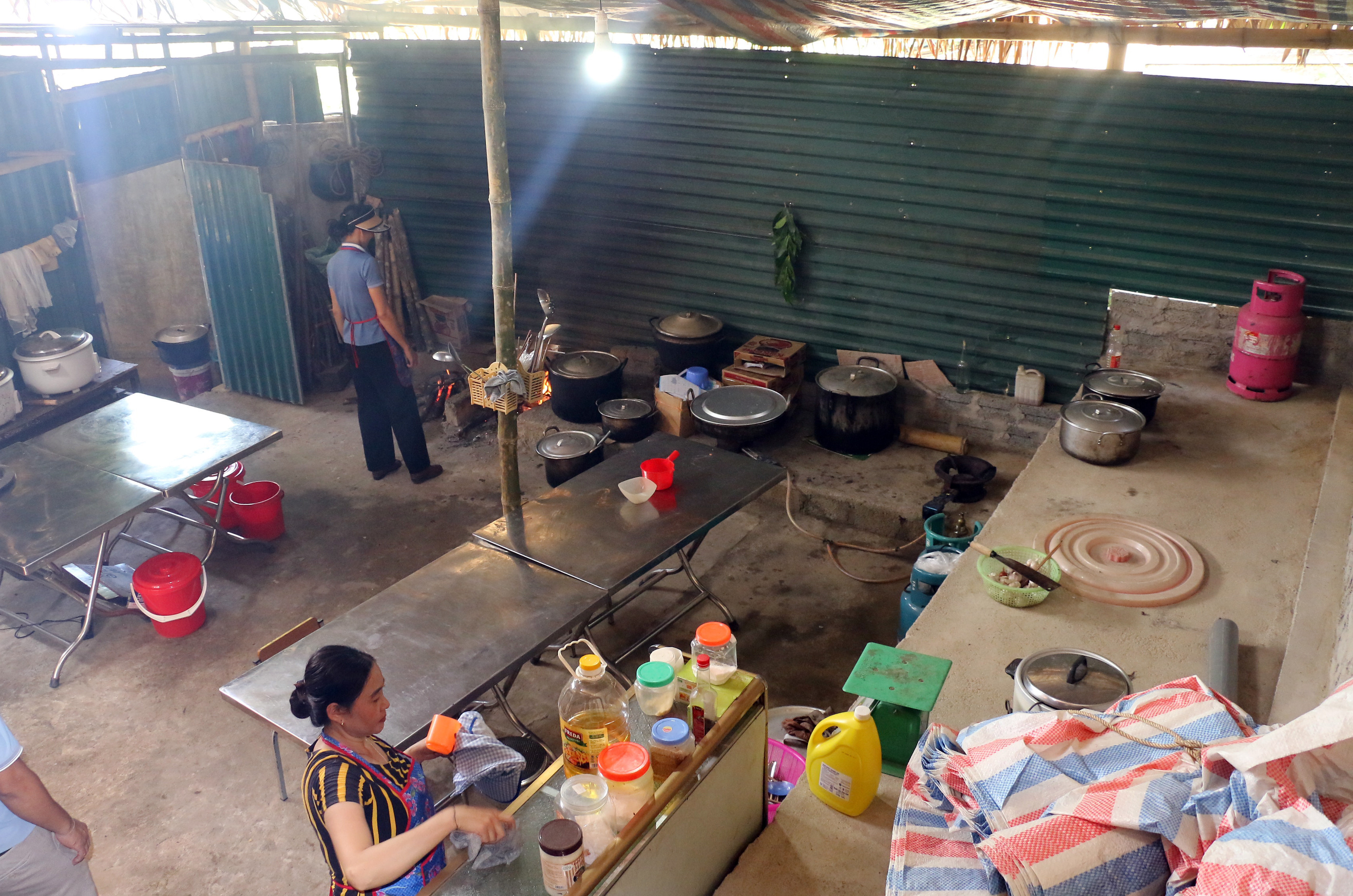
Most of the boarding primary schools are facing many difficulties due to lack of facilities, especially lack of classrooms and accommodation for boarding students. Therefore, we hope that the departments and sectors will continue to pay attention to investing in building facilities, teaching equipment, especially housing, dining halls, kitchens, and sanitation facilities for boarding ethnic minority primary schools and schools with boarding students.
In the current situation, it is very difficult to call for social investment in infrastructure for boarding schools. Meanwhile, to organize quality boarding schools, there must be synchronous investment so that parents can feel secure in sending their children to school.
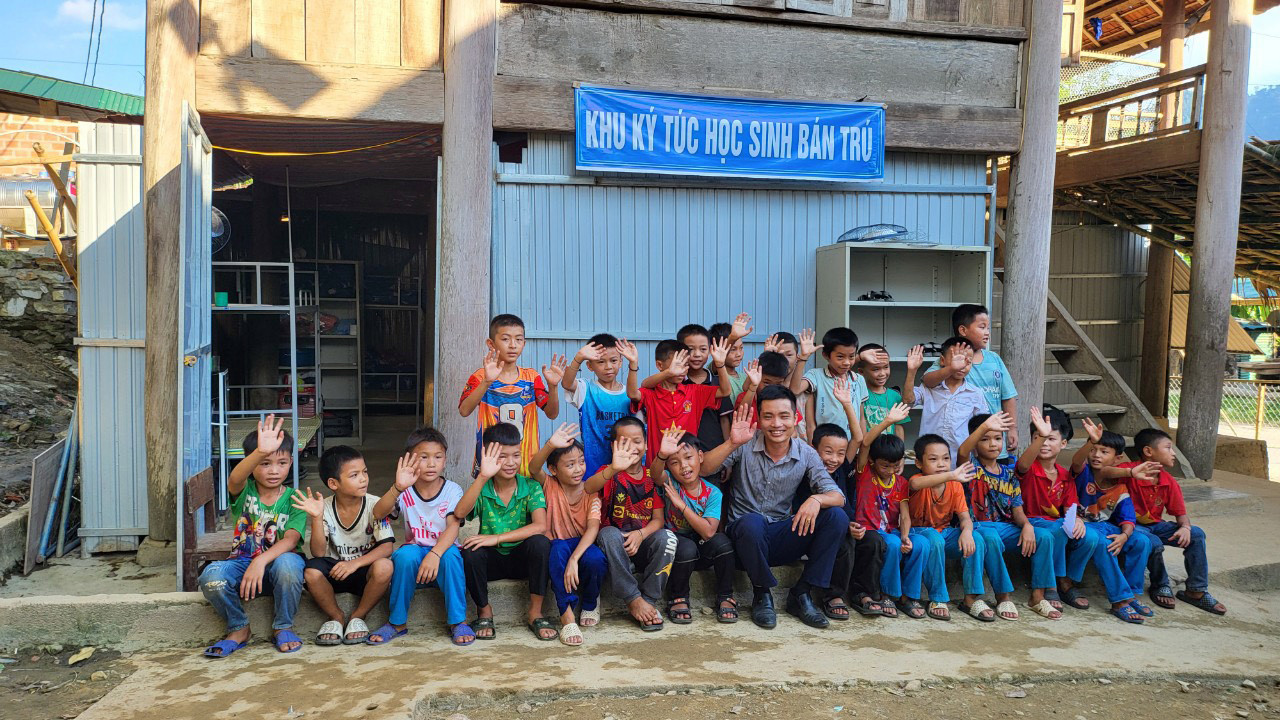
In addition to the above difficulties, the boarding school model in mountainous districts is also facing many other realities such as a lack of teachers, a lack of health care staff, the ratio of teachers for specialized schools is not arranged in sufficient numbers according to regulations of the Ministry of Education and Training, and policies for ethnic minority students are still low.
Therefore, in parallel with the development of this model, schools and localities also hope that the province needs to have priority policies, pay attention to allocating capital to build facilities, and promptly supplement equipment to serve at least the learning and living needs of students and schools./.

